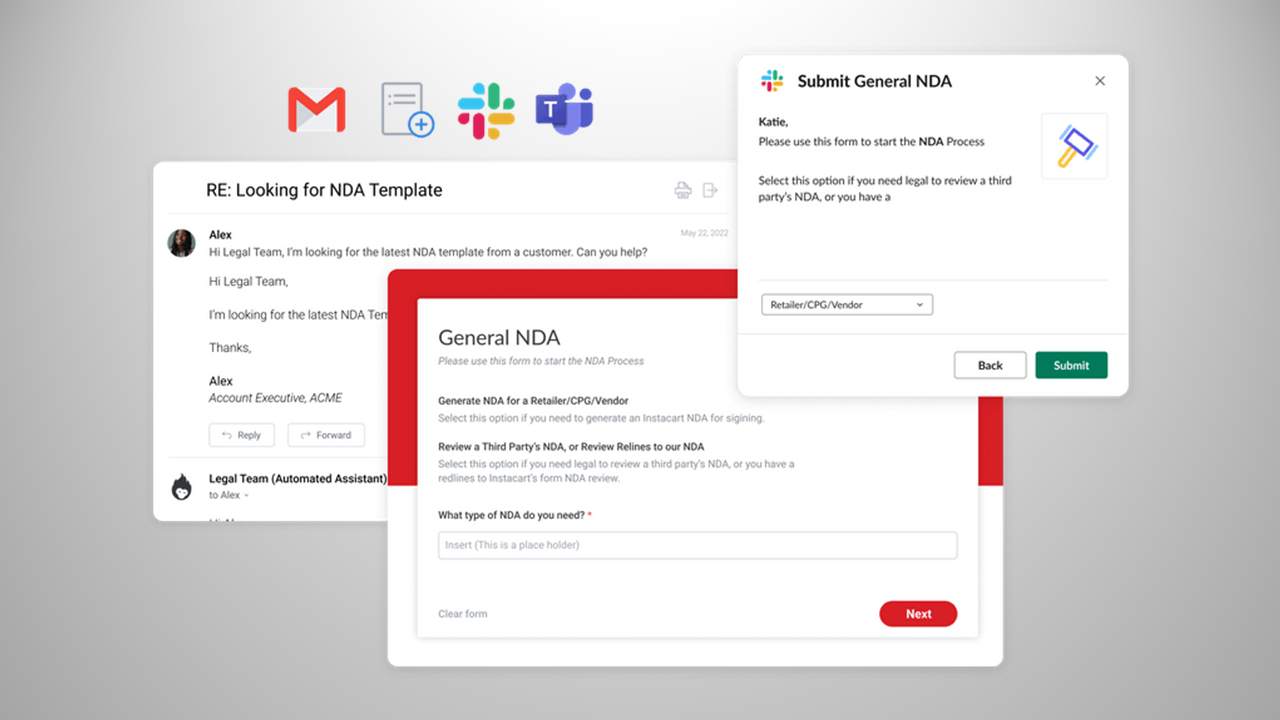Tonkean, a Palo Alto-based company that describes itself as the first-of-its-kind process experience platform, has launched a matter lifecycle management product for corporate legal teams, LegalWorks, that it says enables them to harness the potential of AI-powered process automation technology safely — in a way that will not only increase process adoption, improve performance, and create business value, but that will also lower risk and better ensure compliance.
For legal teams, Tonkean says, processes are everything, particularly around legal intake, triage andn coordination. “They’re the means by which you scale efforts to improve operational performance, implement innovative technology, mitigate risk, and provide more value to the business: all critical mandates of the modern legal department.”
The problem, however, is that process adoption is endemically low, with at least 67% of employees routinely skipping legal processes altogether, Tonkean says, thwarting optimization efforts and limiting the potential value of the legal department as a business partner.
So how does LegalWorks tackle this problem? Tonkean says it does so by “putting structure around the raw firepower of innovative technologies,” such as large language models, and by enabling those on legal teams “to create flexible, powerful legal processes that are safe, personalized for the requester, and that employees actually want to follow.”
To achieve this, LegalWorks comes with two GPT-powered tools developed by Tonkean:
- AI Front Door, an AI-powered intake tool accessible to employees via email, Slack, Teams, or a customized web portal. When employees need the legal department to do something such as create an NDA, all they need to do is ask via AI Front Door, and it trawls the data sources you’ve given it access to and, if the requested document doesn’t already exist, generates it instantly.
- LegalGPT, which allows legal teams to create processes that automatically triage and classify unstructured inbound business requests. LegalWorks also identifies the urgency of every inbound request, auto-handles simple requests — such as requests for NDAs and SOWs — and auto-routes more complex requests (for conflict waivers, IP, or engagements with outside counsel) to the right person or practice group, Tonkean says.
Tonkean says LegalWorks drives adoption in two other ways:
- It meets employees where they are, wrapping seamlessly around whatever tools, policies, and systems your organization already has in place. “This means that never again will employees need to undergo frustrating change management, or useless company-wide training and enablement sessions, in order to engage with a legal process.”
- It can be easily customized using a 100% no-code builder. “No more trainings, change management, or relying on developers in order to implement process improvements or iterate on workflows,” Tonkean says.
“Increasing process adoption is not a ‘nice to have’ for legal teams — it’s a must,” says Sagi Eliyahu, CEO and co-founder of Tonkean. “Compliance, efficiency, cost saving and creating business value all depend on high process adoption. But, historically, legal tools have focused only on legal teams themselves — not the stakeholders requesting help. …
“LegalWorks changes that by optimizing the experience for the requester, meeting people where they already are, and enabling legal to securely create internal processes that are intelligent, personalized, strategic, and controlled.”
 Robert Ambrogi Blog
Robert Ambrogi Blog